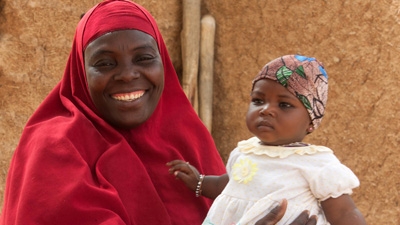WASHINGTON, March 8, 2013–In an event to mark International Women’s Day, development experts agreed that the lives of women around the world have improved dramatically, at a pace and scope difficult to imagine even 25 years ago.
Two perspectives highlighted the debate on the impact of gender programs.
First, looking at the glass half full, there are several aspects for which the international community should applaud. Women have made unprecedented gains in rights, education, health, and access to jobs and livelihoods.
In the last 30 years, 552 million women joined the labor force and today, four out of 10 workers globally are women. In low- and middle-income countries life expectancy among women has increased by 20 years since 1960. And women are increasingly involved in the political realm. Out of the top 10 countries with the highest percentage of female parliamentarians, four of them are in Africa.
Second, however, looking at the glass half empty, development experts agree that equal opportunity, regardless of sex, is not only the right thing to do; it is also smart economics. Underinvesting in women puts a brake on poverty reduction. Research, including the “World Development Report 2012: Gender Equality and Development”, suggests that women usually reinvest a much higher portion of their earnings into their families and communities, compared to men.
This year, The World Bank is discussing with its development partners how to build on gender gains and how to make the Bank’s work more effective in supporting girls and women—and thereby development at large—in low-income countries.
More Data Needed
Scant data on women's earnings, property ownership, and political voice is available. For example, since 2005, there is a lack of data on the share of women in non-agricultural wage work for most of Sub-Saharan Africa.
Through the Gender Innovation Lab and other global initiatives, the World Bank is trying to remedy this.
In summer 2012, World Bank President Jim Kim launched the Gender Data Portal, which is an important step in aggregating what data exists. The Bank will work to improve data collection on equality in 10 countries, and then 10 more after that, and so on. With support from the Bill and Melinda Gates Foundation, the World Bank Research Group is also involved in collecting detailed agricultural data in seven African countries, and this will provide a rich set of data to help build the knowledge base. The World Bank is not only building the capacity of national statistical agencies, but also aims to make sure that it is asking the right questions.
Convened by the Bank’s Africa Poverty and Economic Management (PREM), the launch of the Gender Action Plan and Gender Innovation Lab on March 7, 2013, brought together gender and development experts and practitioners globally. The event included an online audience as well as participants in Washington, Accra, Kigali and Kampala to debate the best way to use results from impact evaluations—studies on the actual impact of development interventions—to improve gender programs.
World Bank Support for Gender Programs in Africa
In fiscal year 2012 alone, just over US$29 billion, or 83 percent of the World Bank's overall lending and grants, was allocated to gender-informed operations in education, health, access to land, financial and agricultural services, jobs, and infrastructure. The allocation was a result of the Bank, together with its partners, making gender a Special Theme of the International Development Association (IDA), which between 2011 and 2014 will provide close to $50 billion in credits and grants to the world’s poorest countries, many of which are in Africa.

